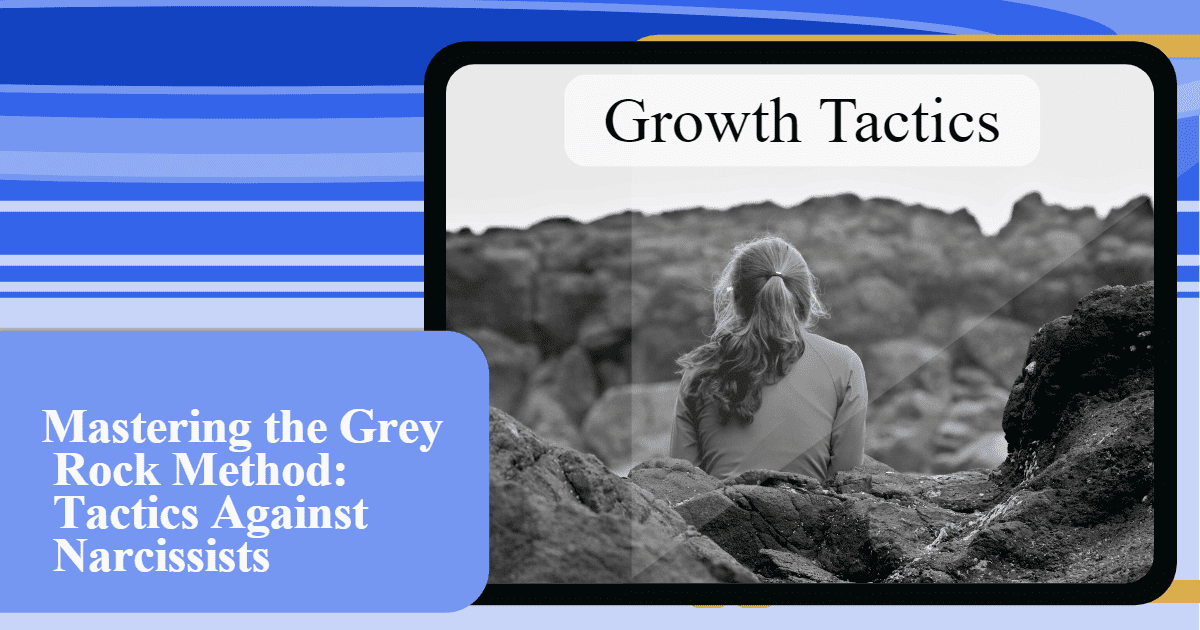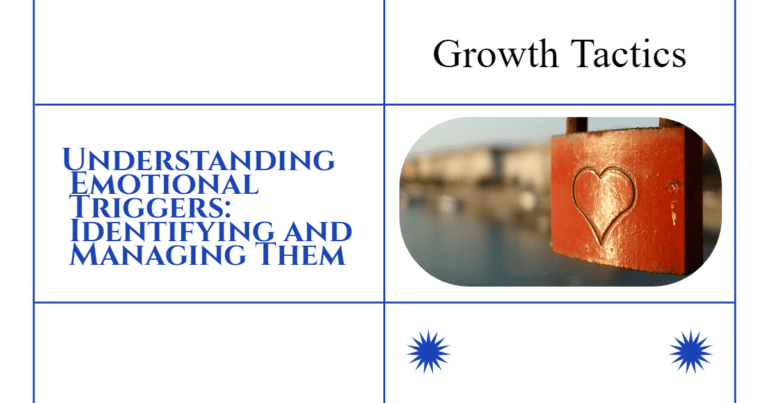Dealing with narcissistic individuals can be emotionally draining and challenging. However, there is a method that can help you regain control and protect yourself from their manipulative behavior – the grey rock method.
In this article, we will explore the ins and outs of the grey rock method, how it works, and tactics you can employ to master it. Whether you’re dealing with a narcissistic partner, coworker, or family member, this article will provide you with the tools and knowledge to confidently navigate these difficult interactions. Let’s discover how to use the grey rock method.
Jump To Section
Understanding Narcissistic Behavior
Narcissism is a personality disorder characterized by an excessive sense of self-importance, a constant need for admiration, and a lack of empathy towards others. Understanding the behavior of narcissists is crucial in implementing the grey rock method effectively.
Identifying Toxic Behavior
Narcissists often display a range of toxic behaviors that can be detrimental to those around them. These behaviors may include:
-
Manipulation: Narcissists are skilled manipulators who use various tactics to get what they want and control those around them.
-
Gaslighting: Gaslighting is a psychological tactic used by narcissists to make others question their reality and doubt their own perceptions.
-
Provoking: Narcissists may provoke others intentionally to elicit emotional reactions and maintain a sense of power and control.
-
Psychological abuse: Narcissists may engage in emotional, verbal, and psychological abuse to undermine and demean their targets.
The Impact of Narcissistic Behavior
Being in a relationship with a narcissistic individual can have severe consequences on one’s mental and emotional well-being. The constant manipulation, gaslighting, and abusive behavior can lead to feelings of worthlessness, anxiety, and deep emotional pain. Recognizing the harmful effects of narcissistic behavior is essential for taking proactive steps to protect oneself.
Understanding the dynamics of narcissistic behavior sets the stage for effectively employing the grey rock method as a means of self-defense.
The Grey Rock Method: What is it and How It Works
The grey rock method is a powerful and effective strategy for dealing with narcissists and protecting oneself from their toxic behavior. The goal of this method is to become as emotionally uninteresting and unresponsive as a “grey rock” in order to discourage the narcissist’s attention and manipulation.
How it Works
When implementing the grey rock method, there are several key elements to consider:
1. Limiting Emotional Reactions: One of the most important aspects of the grey rock method is to refrain from displaying strong emotions or engaging in arguments with the narcissist. Narcissists feed off emotional reactions, so by staying calm and neutral, you deny them the gratification they seek from manipulating your emotions. This involves being aware of emotional triggers and consciously choosing not to react to them.
2. Boring and Predictable Responses: Another important aspect of the grey rock method is to respond to the narcissist with minimal information and uninteresting replies. Keep your responses short, simple, and devoid of any personal details or emotions. The goal is to make yourself as uninteresting as possible, so the narcissist loses interest in engaging with you. This can involve giving monosyllabic answers or responding in a flat, matter-of-fact tone.
3. Avoiding Attention: Narcissists thrive on attention and validation. By avoiding seeking attention or validation from the narcissist, you decrease their interest in targeting and manipulating you. Instead of engaging in discussions or seeking their approval, focus on redirecting the conversation to neutral topics or disengaging from the interaction altogether. This helps to minimize their opportunities to exploit your emotions or vulnerabilities.
4. Minimizing Contact: Whenever possible, it is beneficial to reduce or limit contact with the narcissist. In some cases, cutting off contact entirely may be necessary for your well-being and mental health. Minimizing contact helps to protect yourself from their toxic behavior and allows you to focus on healing and moving forward.
Benefits of the Grey Rock Method
Implementing the grey rocking can provide several advantages in dealing with narcissists:
1. Protection from Manipulation: By becoming an uninteresting presence, the narcissist is less likely to target and manipulate you. They may grow tired of not getting the emotional reactions they desire and eventually seek other sources for their manipulation.
2. Preservation of Emotional Well-being: The grey rock method acts as a shield, helping to protect your emotions from the narcissist’s attempts to provoke and harm you. By limiting your emotional engagement, you reduce the impact their behavior has on your mental and emotional well-being, allowing you to maintain a sense of stability and serenity.
3. Regaining Control: The grey rock method allows you to take back control of the interaction. By opting for a neutral and unresponsive approach, you regain power and prevent the narcissist from affecting you deeply. This empowers you to set boundaries and establish a healthier dynamic in your relationship with the narcissist.
The grey rock method can be a valuable tool in managing interactions with narcissists while safeguarding your mental and emotional well-being. It is important to remember that implementing this approach may not change the narcissist’s behavior, but it can protect you from their manipulation and help you regain control of your own life.
Practical Tips for Implementing the Grey Rock Method
Successfully implementing the grey rock method requires some practical strategies and techniques. Here are some tips to help you navigate interactions with narcissists effectively:
1. Set Boundaries
Establish clear boundaries and stick to them. Let the narcissist know what behavior is unacceptable and what consequences they can expect if they cross those boundaries. By setting and enforcing boundaries, you assert your power and protect yourself from their manipulative tactics.
2. Practice Emotional Regulation
Maintain control over your emotions when interacting with a narcissist. Remind yourself that their behavior is not a reflection of your worth or validity. Take deep breaths, practice mindfulness, and focus on staying calm and composed.
3. Use Neutral Language and Tone
When communicating with a narcissist, avoid emotional triggers that can fuel their manipulation. Respond using neutral language and a calm tone. Keeping your responses brief and devoid of emotions makes you less interesting to the narcissist.
4. Disengage from Emotional Conversations
If the conversation turns into an emotionally charged one, disengage. Refrain from participating in arguments or discussions that can lead to manipulation or gaslighting. Redirect the conversation to neutral topics or exit the situation if necessary.
5. Create a Support System
Having a strong support system can be crucial when dealing with narcissists. Surround yourself with people who understand your situation and provide emotional support. Seek therapy or counseling if needed to help you navigate the challenges of being in a relationship with a narcissist.
6. Focus on Self-Care
Prioritize self-care and self-compassion. Take time for yourself, engage in activities that bring you joy, and practice self-care techniques such as meditation, exercise, or spending time in nature. Nurturing your well-being will help you maintain resilience and strength in the face of narcissistic behavior.
By implementing these practical tips, you can effectively employ the grey rock method and protect yourself from the manipulation and toxicity of narcissistic individuals.
When to Seek Professional Help
Dealing with a narcissist can be extremely challenging and emotionally draining. In some cases, the impact of narcissistic behavior can result in serious psychological and emotional harm. It is important to know when it is necessary to seek professional help. Here are some signs that indicate it may be time to reach out to a mental health professional:
1. Persistent Emotional Distress
If you find yourself experiencing persistent feelings of anxiety, depression, or low self-esteem due to the narcissist’s behavior, it is crucial to seek professional support. A therapist can provide the necessary tools and guidance to help you navigate the emotional impact of the relationship.
2. Inability to Set Boundaries
If you find it difficult to establish and enforce boundaries with the narcissist, and their behavior continues to have a significant negative impact on your life, seeking professional help can be beneficial. A mental health professional can help you develop strategies to effectively communicate and maintain boundaries.
3. Isolation and Withdrawal from Loved Ones
Narcissistic individuals often isolate and manipulate their victims, leading to a sense of isolation and withdrawal from friends and family. If you find yourself feeling socially isolated and struggling to maintain healthy relationships due to the narcissist’s influence, reaching out to a therapist can help you restore your support network.
4. Escalation of Abuse
If the narcissistic behavior escalates to physical abuse or poses a threat to your safety, it is crucial to seek immediate help from professionals or support agencies specializing in domestic violence. They can provide the necessary resources and assistance to ensure your safety.
Remember, seeking professional help is not a sign of weakness but an act of self-care and empowerment. A trained mental health professional can provide invaluable support and guidance to help you heal and reclaim your life from the impact of narcissistic behavior.
Conclusion
Dealing with a narcissist can be incredibly challenging, but implementing the grey rock method and seeking professional help when needed can provide a sense of empowerment and protection. Embracing the grey rock method allows you to reclaim control over your emotions, protect your well-being, and minimize the impact of the narcissist’s manipulation.
Remember to set clear boundaries, practice emotional regulation, and disengage from emotionally charged conversations. Surround yourself with a strong support system of loved ones and consider seeking therapy or counseling to help navigate the complexities of dealing with a narcissistic individual.
Ultimately, your well-being is of utmost importance. Take care of yourself and prioritize your mental and emotional health. With the right strategies, support, and self-care, you can navigate these challenging relationships and emerge stronger and more resilient.








